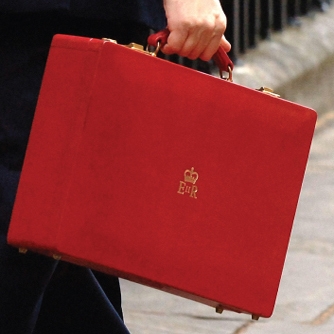Autumn Budget statement pledges £2bn for crisis mental health services

The Government will use £2bn of the NHS funding boost pledged earlier this year to fund mental health crisis services, including a mental health ‘hot line’.
Outlining the Autumn Budget, chancellor Philip Hammond confirmed that the NHS will receive £20.5bn extra funding for the next five years, as the Prime Minister announced in June.
He said this comes as the ‘era of austerity is coming to an end’.
Mr Hammond said the full breakdown of how the extra NHS funding would be spent would come as part of the 10-year NHS plan expected ‘shortly’.
But, in a ‘sneak preview’ on the plan, he announced that ‘funding for mental health services will grow as a share of the overall NHS budget over the next five years’, including ‘up to £250m a year by 2023/24 into new crisis services.
He said this would include:
- 24/7 mental health support via NHS 111, which he referred to as a crisis ‘hot line’;
- Children and young people’s crisis teams in every part of the country;
- Comprehensive mental health support in every major A&E by 2023/24;
- More mental health specialist ambulances;
- More community services such as crisis cafes;
- Schools-based mental health support teams and specialist crisis teams for young people; and
- Expanded access to the Individual Placement Support programme to help those with severe mental illness find and retain employment.
Mr Hammond said: ‘There are many pressing demands on additional NHS funding, but few more pressing that those who suffer from mental illness… These new services will ensure that people suffering from a crisis, young or old, can get the help they need.’
He added: ‘We are proud to have made this extraordinary commitment to funding our NHS, a precious institution which has been nurtured for most of its life by Conservative governments.’
The budget statement further said the 10-year plan ‘must set out how the NHS will return to financial balance’; acheiving ‘cash-releasing productivity growth of at least 1.1% a year’.
It also said it must ‘reduce the growth in demand for care through better integration and prevention’; ‘reduce variation across the health system, improving providers’ financial and operational performance’; and ‘make better use of capital investment and its existing assets to drive transformation’.
Other health-related budget announcements included:
- £10 million of capital funding for ambulance trusts;
- Frozen tax on beer and spirits;
- An extra £650m funding for social care in 2019/20;
- Abolishing the use of PFI and PF2 for all future public services contracts, and a new ‘centre of excellence’ to actively manage existing PFI contracts, starting in the health sector.
BMA GP Committee chair Dr Richard Vautrey said: ‘The promised funding increases in this budget are unlikely to result in general practice reaching 11% of the NHS budget which is what the BMA believes is needed to provide a fully sustainable service.
‘The investment in mental health services is welcome, but a similar figure needs to be directed directly into practices to deliver the focus the Government wants.
‘Ministers must realise that more needs to be done not least to address the difficult environment in general practice that is damaging patient care and putting GPs under intolerable pressure.’
BMA Northern Ireland chair Dr Tom Black, said: ‘We will obviously welcome any additional funding for health. What amount from this budget is eventually allocated to health and social care services in Northern Ireland of course remains uncertain without a devolved Assembly in place to take forward such a decision.
‘What is certain as we approach the busy winter season is that we still do not have enough GPs or hospital doctors to meet the needs of the growing population of Northern Ireland.’
Last week BMA chair Dr Chaand Nagpaul warned the Government that the extra £20bn will not be enough to solve the problems in the NHS, while stressing the need for increased general practice funding.
And, earlier this year, health secretary Matt Hancock said it was ‘mission-critical’ for primary care to receive more cash as part of the extra funding announced for the NHS, in order to reduce A&E pressures.
Pulse July survey
Take our July 2025 survey to potentially win £1.000 worth of tokens

Visit Pulse Reference for details on 140 symptoms, including easily searchable symptoms and categories, offering you a free platform to check symptoms and receive potential diagnoses during consultations.











